Its supaB
Commish


Posts : 582
Reputation : 0
Join date : 2010-07-12
Age : 32
Location : Baltimore, MD
 |  Subject: Madden Attributes Explained Subject: Madden Attributes Explained  Tue Nov 11, 2014 11:09 pm Tue Nov 11, 2014 11:09 pm | |
| BASIC ATTRIBUTES
Let’s start with the basics. First of all, every player has Height (HT). This really does make a difference during gameplay. Taller receivers can jump to grab a pass out of the air, and taller defenders are more likely to swat down passes or block kicks.
Here is a rundown on some of the other attributes all players share.
Pro Tip: Attributes highlighted in color are receiving a Style Boost from the current Team Style selections.
Speed (SPD) – How fast a player runs after fully accelerating.
Strength (STR) – Provides a boost for blocking, shedding blocks, power moves, throwing and trucking.
Agility (AGI) – How well the player cuts when running, responding to the Left Stick more quickly.
Acceleration (ACC) – How quickly a player achieves his full speed.
Awareness (AWR) – Reacting to the other players on the field, both teammates and opponents.
Jumping (JMP) – How high a player jumps.
Stamina (STA) – How quickly a player gets tired and requires substitution.
Injury (INJ) – How often a player will be injured.
RUSHING ATTRIBUTES
This group describes how players perform when carrying the ball. These are the primary focus for running backs, but they’re also important for receivers after the catch and scrambling quarterbacks.
Trucking (TRK) – How well a runner knocks down a defender’s tackle attempt.
Elusiveness (ELS) – How well the runner jukes, makes spin moves, and breaks tackles.
Ball Carrier Vision (BCV) – The runner’s ability to navigate in between blocks to hit holes.
Stiff Arm (SFA) – Effectiveness of the runner’s stiff arm move.
Spin Move (SPM) – Effectiveness of the runner’s spin move.
Juke Move (JKM) – Effectiveness of the runner’s juke move.
Carrying (CAR) – The runner’s ability to hold onto the ball and decrease the chance of fumbles.
RECEIVING ATTRIBUTES
Once the ball is in the air, these are the attributes that help determine whether a catch is made. They are important for any receiver, including wide receivers, tight ends, and running backs.
Catching (CTH) – How well the receiver catches the ball while moving in the open field.
Catch in Traffic (CIT) – How well the receiver catches the ball with a defender near him.
Route Running (RTE) – Creates more separation for the receiver against Man Coverage.
Spectacular Catch (SPC) – How often the receiver makes sideline, one-handed, or jumping catches.
Release (RLS) – Determines the receiver’s ability to beat Press coverage.
THROWING ATTRIBUTES
These are almost always used by quarterbacks, but the occasional halfback pass or fake kick play will use the attributes of that throwing player instead. They sometimes determine the chance of actually making the throw attempt in addition to the accuracy of that throw.
Throw Power (THP) – Determines maximum throwing distance and the speed of the ball in flight.
Throw Accuracy Short (TAS), Mid (TAM), Deep (TAD) – Accuracy for passes under 20 yards, between 20-40 yards, and more than 40 yards.
Pro Tip: Throw Accuracy (THA) is important only in games that are simulated.
Throw on the Run (TOR) – How well the passer throws the ball when moving outside of the pocket.
Play Action (PAC) – How well the thrower’s fake handoff baits the defender into playing the run.
OFFENSIVE LINE ATTRIBUTES
Every offensive player that blocks on a play will use some of these attributes. In addition to offensive linemen, this includes tight ends, fullbacks, or even wide receivers.
Run Block (RBK) – How well the blocker engages the defender and holds his block for a run play. Pro Tip: Boosted in MUT by Ground and Pound and Speed Run Team Styles.
Pass Block (PBK) – How well the blocker holds his block when protecting for a pass play. Pro Tip: Boosted in MUT by Short Pass and Long Pass Team Styles.
Impact Blocking (IMP) – The ability to pancake (knock the defender down) when blocking in the open field.
Pro Tip: Run Block Strength (RBS), Run Block Footwork (RBF), Pass Block Strength (PBS), and Pass Block Footwork (PBF) are no longer used.
DEFENSIVE ATTRIBUTES
While some of these attributes are more important to linemen than linebackers or defensive backs, all of these attributes are valued for defending players.
Tackle (TAK) – Determines success at making a tackle. Compared with Stiff Arm and Trucking.
Hit Power (POW) – How hard a defender tackles, including chance of fumbles and injuries.
Power Move (PWM) – Using strength to defeat the offensive line. Compared with Pass Block.
Finesse Move (FNM) – Using swim and spin moves to defeat the offensive line. Determines time required to perform a successful move.
Block Shedding (BKS) – Ability to get off a block, allowing pursuit of the ball carrier or success versus run block double teams.
Pursuit (PUR) – Ability to catch up to the ball carrier, when unblocked or when his block is shed.
Play Recognition (PRC) – Reacting to run or pass and defending specific routes. Also reacting properly to play action or screen plays.
Man Coverage (MCV) – Ability and tackle skill chance when man to man coverage is called. Compared with Route Running. Also knockout chance of a tackle versus Catch in Traffic.
Zone Coverage (ZCV) – Ability and tackle skill chance when zone coverage is called. Also knockout chance of a tackle versus Catch in Traffic.
Press (PRS) – Ability to harass the receiver at the line of scrimmage when press coverage is called. Compared to Release.
SPECIAL TEAM ATTRIBUTES
These attributes are only used during field goal attempts or punts.
Kick Power (KPW) – Determines the maximum distance the player can kick or punt.
Kick Accuracy (KAC) – How easy it is to kick (affects the speed of the kick meter).
Kick Return (KR) – Enhances breaking tackles and elusiveness for kick and punt returners. | |
|








 S2: GoldHBK
S2: GoldHBK S3: majestic1juan
S3: majestic1juan 
 S2: Majestic1juan
S2: Majestic1juan  S3: Kenny922
S3: Kenny922  S4: No1xDraft Pck
S4: No1xDraft Pck 
 S2: Tragic22
S2: Tragic22  S3: No1xDraft Pck
S3: No1xDraft Pck 
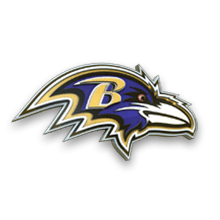
 S2: supaB
S2: supaB 




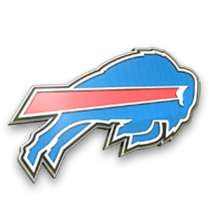
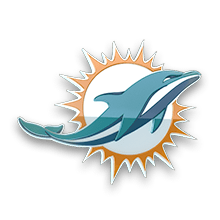










 MikeDTexan
MikeDTexan Jerzey08
Jerzey08
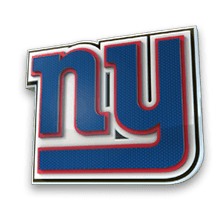 Nautiiboy116
Nautiiboy116 DroidBag1992
DroidBag1992 Riley82
Riley82
 Ohbigheadz
Ohbigheadz 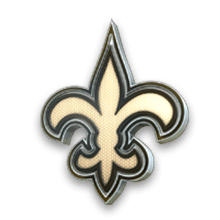 Cyy
Cyy

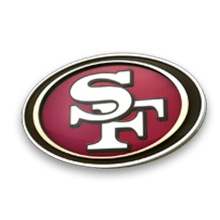 Cavs50020
Cavs50020 ThePsychoOne83
ThePsychoOne83 Llsavage
Llsavage